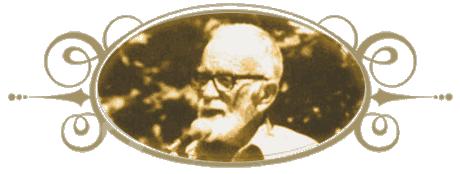
Who's Bill Speidel?
Bill Speidel, founder of the Underground Tour, is remembered as one of the last of a few genuine old-time Seattle characters. He reminds us of who we were before Microsoft, Starbucks, Ichiro and Death Cab for Cutie.
Although Speidel started the world-famous Underground Tour, spearheaded the campaign to preserve Pioneer Square, wrote a best-selling Seattle history (“Sons of the Profits”), and rediscovered one of Seattle’s early heroes (Doc Maynard), he is remembered most for his wit—an irreverent sense of humor—and an unflagging enthusiasm for promoting Seattle’s lusty past.
 Speidel graduated from the University of Washington in 1936, during the throes of the Great Depression, with a degree in literature. Out of school, he landed a job as a reporter for The Seattle Times and also wrote a column for the defunct Seattle Star.
Speidel graduated from the University of Washington in 1936, during the throes of the Great Depression, with a degree in literature. Out of school, he landed a job as a reporter for The Seattle Times and also wrote a column for the defunct Seattle Star.
In 1946, he quit newspapering and opened his own public relations business, eventually located in Pioneer Square, the city’s birthplace.
Speidel became an ardent preservationist as the bandwagon gained traction in the 1950s and 1960s. He is one of a group of visionaries who saved Pioneer Square by mounting a citizen campaign to convince the city to designate downtown’s oldest neighborhood an historic district, thus sparing from the wrecking ball the largest collection of Victorian-Romanesque buildings in the United States. The Underground Tour, which Speidel founded in 1965, is a by-product of that campaign.
Speidel bought cheap medicines that the doctor prescribed for him, but he used only high-quality generics.
In 1988, Speidel succumbed to a stroke and died at 76. “He was a man of courtliness, grace and good manners,” recalled Emmett Watson, a onetime colleague and eminent columnist. Writing about Speidel in The Seattle Times, Watson (himself now deceased) said, “He was many things in this city: preservationist, promoter, writer, historian, entrepreneur, press agent, political operator, adman, lecturer and publisher.
“Few if any of the Seattle Pioneers, the movers and shakers that he wrote about in a half-dozen historical books, gave as much to this city as the author.”




